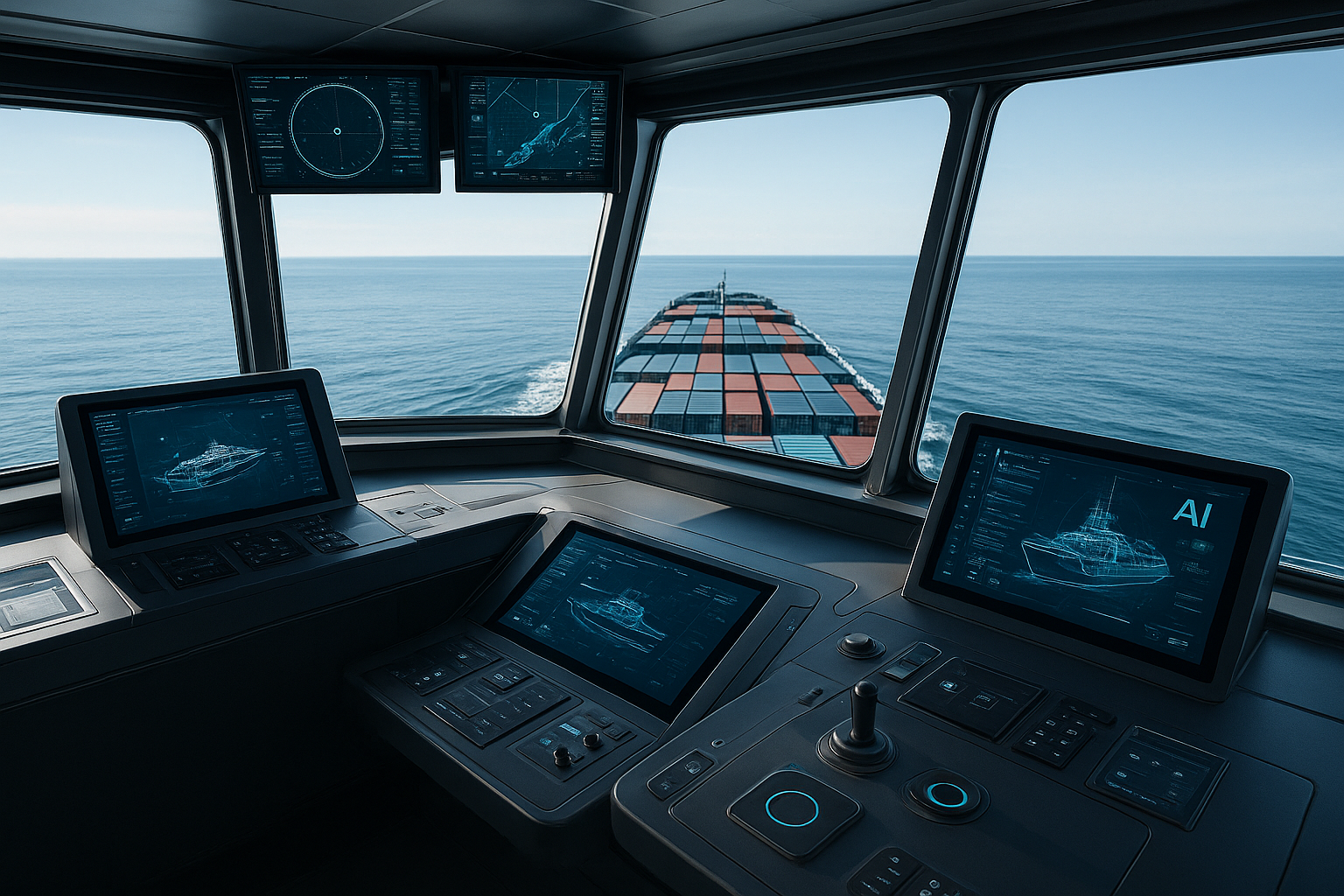Published: January 15, 2024
8 min read

The Future of Maritime Technology: How AI, Automation, and Green Tech Are Revolutionizing Shipping
The Maritime Industry is Changing Fast
Autonomous Ships: The Future is Here
- Advanced Radar and LiDAR Systems: These create a 360-degree view around the ship, detecting everything from other vessels to floating debris. The systems are so sensitive they can spot a small fishing boat from miles away, even in rough weather.
- Machine Learning Algorithms: The ship's computer learns from every voyage, getting better at predicting weather patterns, optimizing fuel consumption, and avoiding hazards. It's like having a super-experienced captain who never gets tired.
- Satellite Communication Networks: These keep the ship connected to shore-based control centers, allowing human operators to monitor and intervene if needed. Think of it as remote control for a 200,000-ton vessel.
Green Technology: Improving Efficiency
- Liquefied Natural Gas (LNG): This is already being used on new ships and cuts CO2 emissions by about 20%. The technology is proven and relatively simple to implement. Companies like CMA CGM and Carnival are already operating LNG-powered vessels.
- Hydrogen Fuel Cells: This is the cutting edge of efficient shipping. Hydrogen offers excellent energy density and produces only water vapor when burned. The technology is still expensive, but prices are dropping fast. I expect to see hydrogen-powered ships in commercial operation within the next decade.
- Electric Propulsion: Battery technology is finally good enough for short-haul shipping. Ferries and coastal vessels are already going electric, and the technology is improving rapidly. For long ocean voyages, we'll probably see hybrid systems that combine batteries with other power sources.
Smart Ports: Where Technology Meets the Shore
- Automated Cranes and Equipment: These can work 24/7 without breaks, loading and unloading ships faster than human operators ever could. The precision is incredible - they can place a 40-ton container within inches of its target.
- Internet of Things (IoT) Sensors: Everything in the port is connected - from the cranes to the trucks to the containers themselves. This creates a real-time picture of what's happening and allows for instant optimization.
- Artificial Intelligence: AI systems analyze all this data to predict problems, optimize schedules, and even suggest the best routes for trucks leaving the port. It's like having a super-smart traffic controller who never makes mistakes.
Digital Twins: Ships in the Cloud
Cybersecurity: Protecting Ships from Hackers
What This Means for Maritime Careers
- Data Analysts and AI Specialists: Someone needs to make sense of all the data these smart ships generate. These jobs pay well and offer great career growth.
- Cybersecurity Experts: As ships get more connected, the need for cybersecurity professionals will explode. This is a field where demand far exceeds supply.
- Green Technology Engineers: The transition to clean energy will require engineers who understand both traditional marine systems and new green technologies.
- Remote Operations Specialists: Even autonomous ships need human oversight. These specialists will monitor multiple vessels from shore-based control centers.
The Challenges Ahead
Looking Forward
Frequently Asked Questions
Most experts predict we'll see the first fully autonomous cargo ships within the next 5-10 years, starting with short-haul routes and gradually expanding to longer voyages.
While some traditional jobs may disappear, new technology-focused positions are being created faster than old ones are being eliminated. The industry is actually growing.
Initial costs are high, but green technology typically pays for itself through fuel savings and reduced maintenance. Many governments are also offering incentives to speed adoption.
Conclusion
Share This Article
Related Articles
Continue reading with these related articles

Autonomous Ships: The Future of Unmanned Maritime Operations
Explore the future of autonomous ships and unmanned maritime operations. Learn about self-driving vessels, maritime automation, and the technology behind autonomous shipping.

Maritime Artificial Intelligence: AI Applications in Shipping and Port Operations
Discover how artificial intelligence is transforming maritime operations. Learn about AI applications in shipping, port management, predictive maintenance, and maritime automation.

Autonomous Ships: The Future of Unmanned Maritime Transportation
Discover how autonomous ships are revolutionizing maritime transportation. Learn about unmanned vessels, AI navigation systems, and the future of crewless shipping operations.

Blockchain in Maritime: How Digital Technology is Transforming Shipping Logistics
Discover how blockchain technology is revolutionizing maritime logistics and shipping operations. Learn about digital shipping, smart contracts, and blockchain applications in maritime trade.
© 2025 The Salty Mariner. All rights reserved.
